
Transcription
By: Jack M. Branch #R17203
Century Correctional Inst.
"Living Water" : John 7:13-26, 37-39; Acts 2:1-4" 10/24/17 1.
Pentecost is a special day for many Christians. Many observe it every year, some more avidly than others. Catholics, some mainline denominations and other liturgical folks switch their vestments and pastoral stoles to red, often with embroidered doves or flames to symbolize the Holy Spirit. Male pastors may wear red neckties, and women clergy may wear red shoes. It is generally a happy day.
Pentecost can be even more special for the churches who are on the charismatic end of the spectrum. Worshippers may feel led by the Spirit to stand, raise their hands, shout, or even speak in tongues. Like the psalmists, their worship is punctuated with vocal praise and bursts of applause, unlike those who believe Habakkuk 2:20 should apply to modern worship:
"The LORD is in his holy temple, let all the earth keep silence..."
Jews celebrate Pentecost, though on the day before, seven weeks and a day from the second day of Passover, Greek speakers called it "Pentecost" (meaning "fiftieth") because it was held on the 50th day after Passover.
Observant Jews anticipate the arrival of Pentecost by counting the days, even as Christians may count the days of Advent, or from Ash Wednesday to Easter. Jews do not use the term "Pentecost", but Shavu'ot meaning "weeks". The festival also called "first-fruits", once celebrated the spring harvest of winter wheat Exodus 34:32). Israelis traditions combined an agricultural holiday with a historical memory: rabbinic calculations in the Talmud claim that God gave the law to Israel on Mt. Sinai exactly 49 days after the Passover celebration.
So, while Jews memorialize the giving of the Law on Pentecost, Christians commemorate the giving of the Holy Spirit.
Living Water
Our text is not from the familiar story of the descent of the Spirit on Pentecost in Acts 2, but is drawn from an account in the Fourth Gospel in which Jesus speaks of the coming of the Spirit.
The setting of this text was also a festival, though it was not Shavu'ot, but Succoth, otherwise known as the "feast of Booths" or "Tabernacles". That festival occurred in the fall, shortly after the solemn Day of Atonement (Yom Kippur). It also combined agricultural and historical elements, celebrating the fall harvest while also commemorating Israel's 40 years of wilderness wandering, when the people lived in tents. In Jesus' day, Jews would build temporary shelters and camp out in them during the week-long festival. Much of Johris gospel is centered around Jesus' visits to Jerusalem, all of which coincided with Jewish festivals, which faithful Jews sought to celebrate in Jerusalem when possible.
-> The early part of John located Jesus in Galilee as the feast of Booths/Succoth drew near. His brothers urged Him to go to Jerusalem but Jesus knew it would be dangerous for Him, so He insisted that they go without Him (vs.8). Later, however, Jesus decided to go (vs. 10). After overhearing much conversation and debate concerning Him, Jesus gave up His attempt at anonymity: at midweek He went to the temple and began to teach (vs. 14).
Other posts by this author
|
2019 jul 2
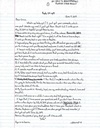
|
2019 jun 7
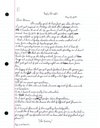
|
2019 jun 7
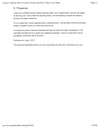
|
2019 apr 22
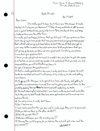
|
2019 apr 22

|
2019 apr 22
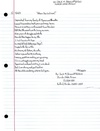
|
More... |
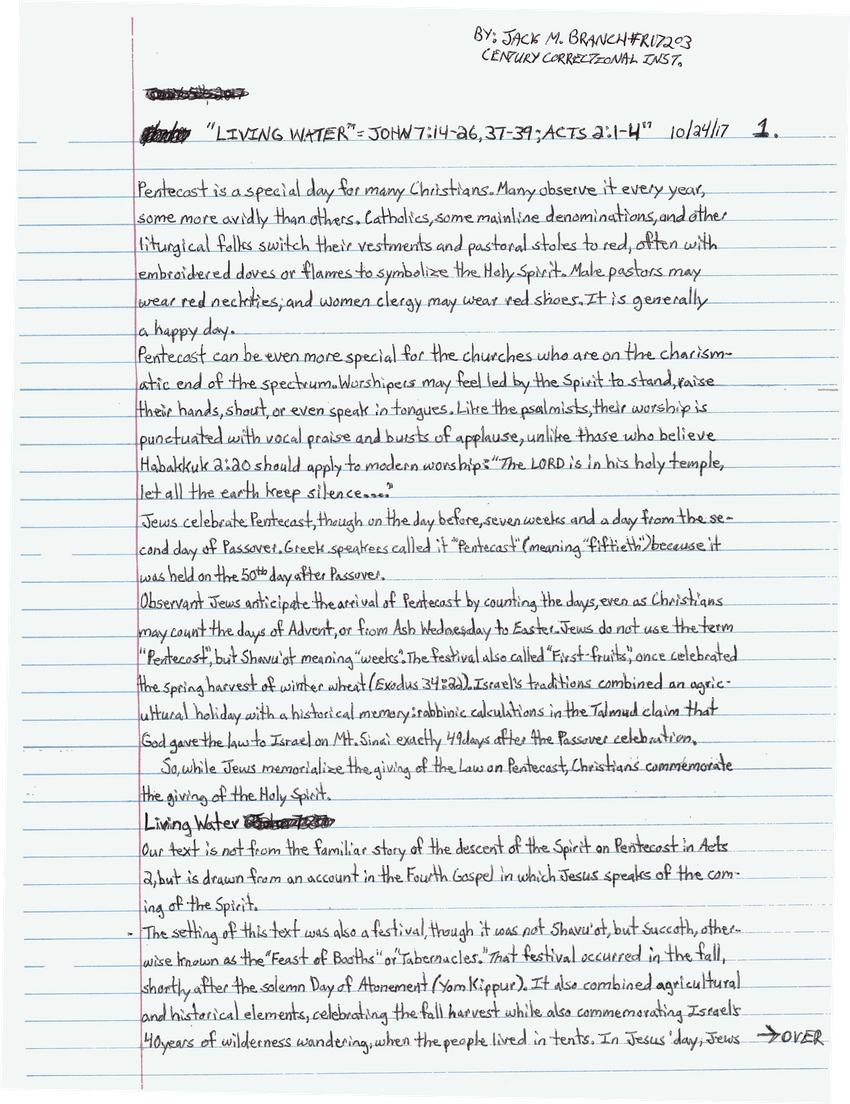
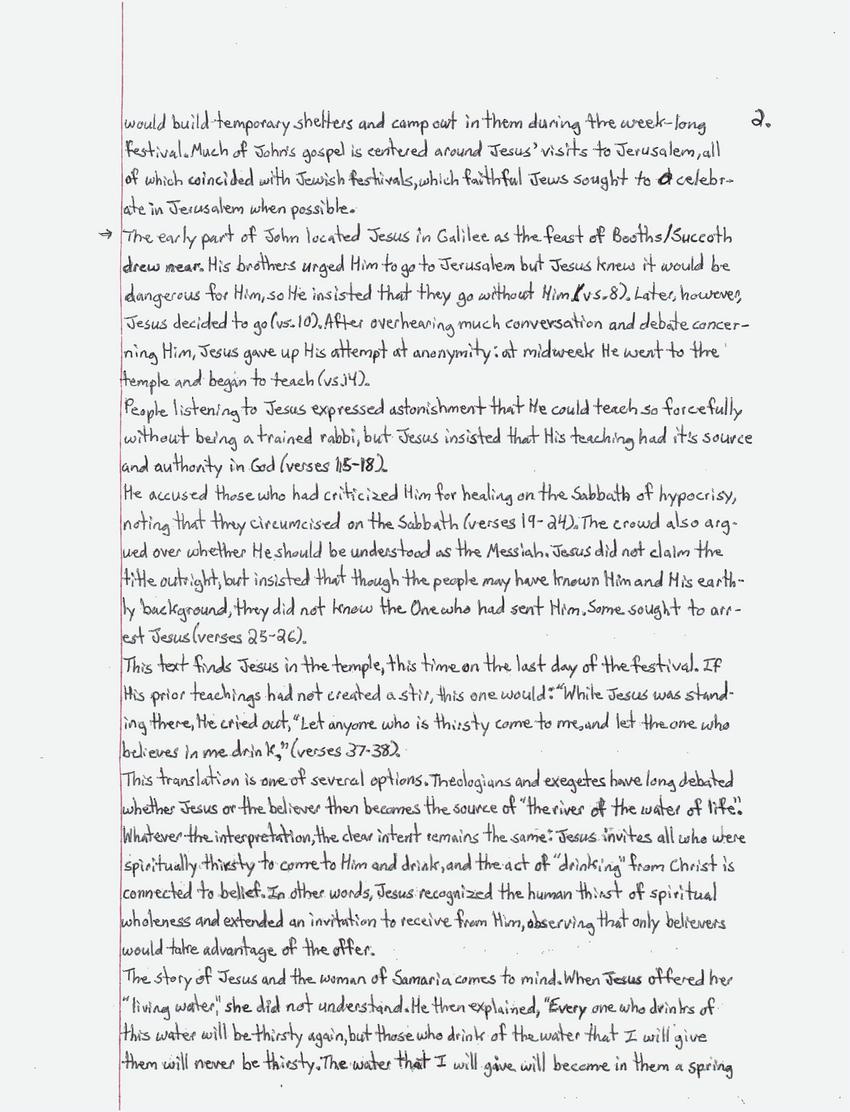
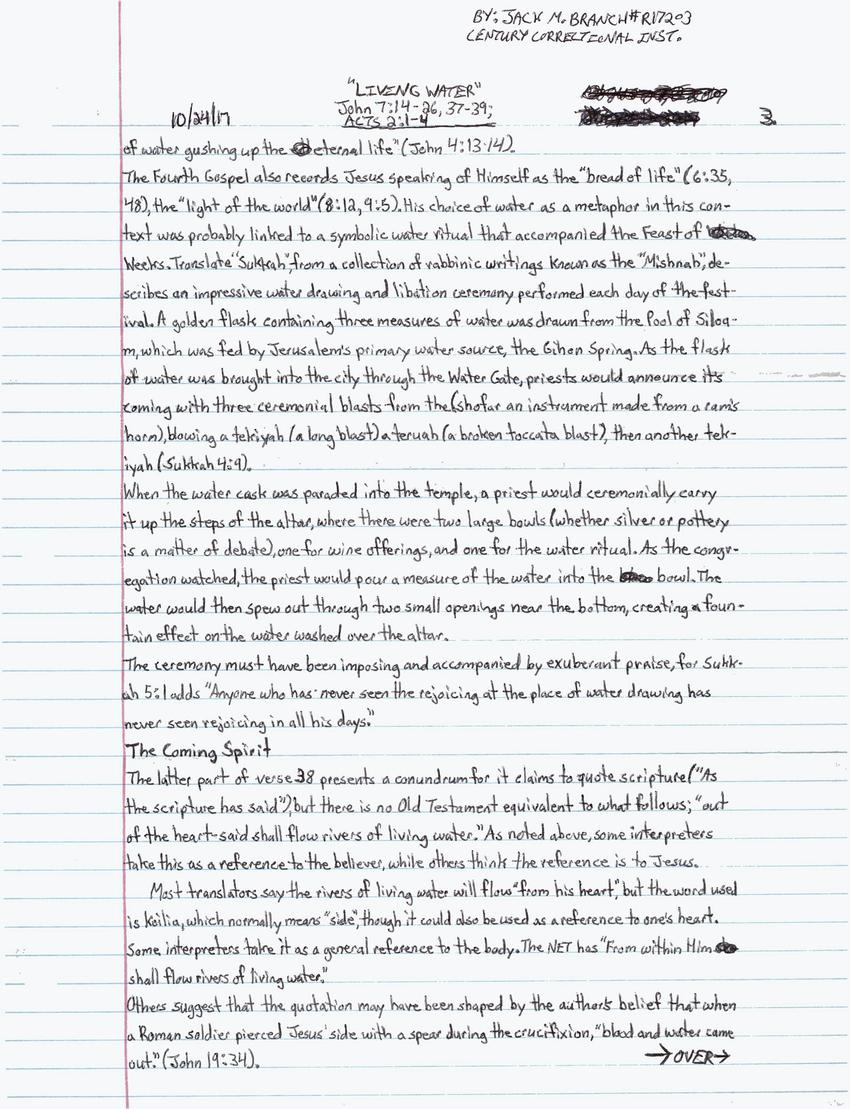
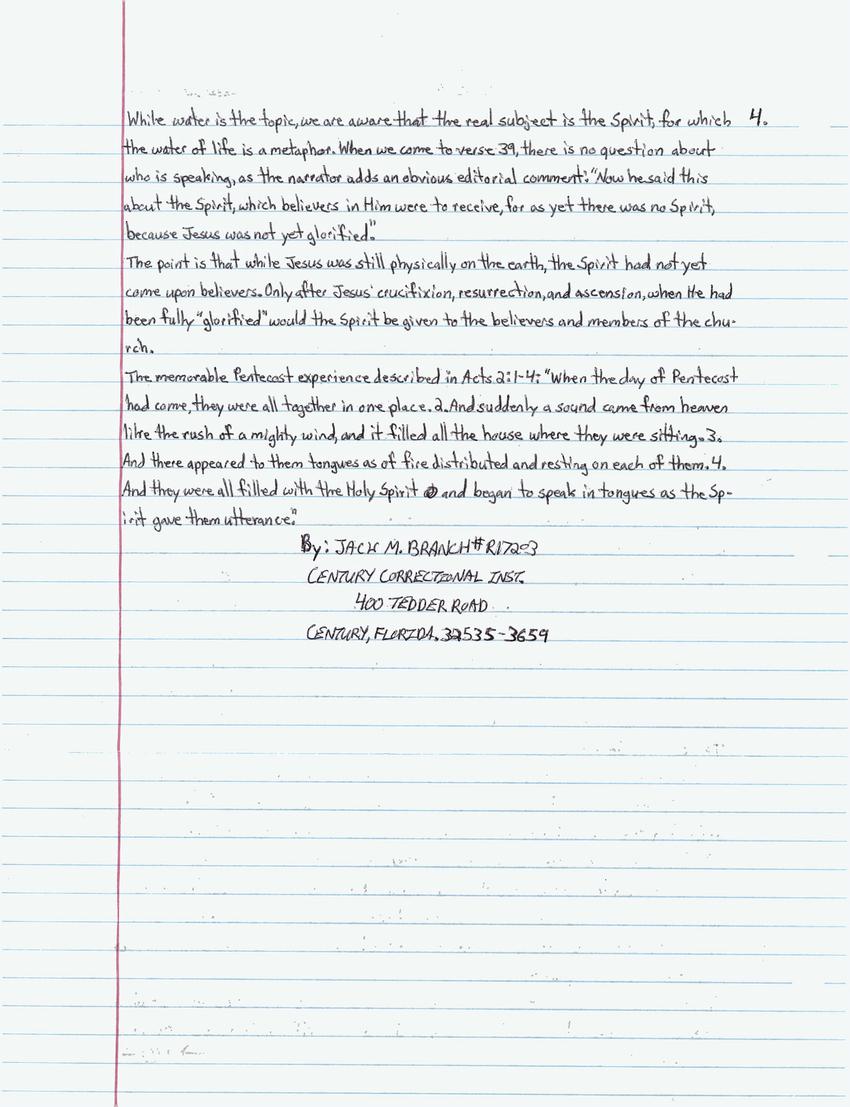

Replies